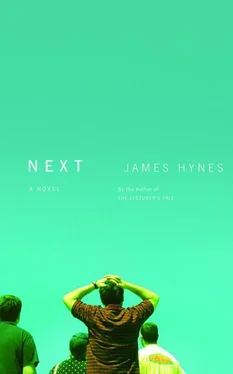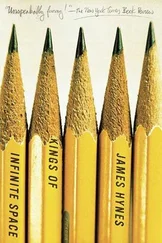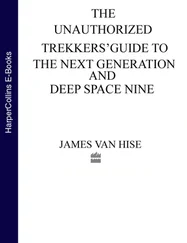Kevin nearly groans aloud. He’s on the very horns of the dilemma, damned if does and damned if he doesn’t. Six of one, as his father used to say, and half a dozen of the other. Settle for senescence, or pull his life out by the roots. It’s not a real choice so much as it’s a choice between two equally risible clichés: Count Your Blessings, or Follow Your Dreams. The fact that his dilemma is so predictable, so utterly and laughably banal, doesn’t make it any less pointed. Look it up (\mid-lif kri-ses\ n ) and find a line drawing of Kevin Quinn in a sporty little convertible, with his perky young — well, young er —girlfriend beside him, her hair loose in the breeze. See MIDDLE-AGED MAN.
“I think that’s Longhorn Place right there,” says the cabbie, and Kevin leans forward for his first real view of Austin’s skyline, shockingly close. It’s like a beautifully crafted and intricately detailed miniature for a film, shot in slow-motion to make it look massive. It’s the city of the future from Metropolis or Things to Come, all it needs is a silvery biplane buzzing between the buildings. Several of the older buildings are neo-deco, broadchested and square, the color of concrete and topped with blunt little Masonic pyramids. Sprouting like saplings among them are three or four construction cranes like T squares and more new condo towers.
“Which one?” Kevin says.
“The tall one,” the cabbie says, “with the pointy top.”
One building is much taller than the others, sleek and narrow and straight-sided, clad in ice-blue panels; on top, four sharp steel and glass triangles tilt toward each other, like a pyramid left slightly ajar, or a grasping, four-fingered mechanical claw. The tower glints icily in the sun, looking slightly unreal and miniature and menacing, the lair of a Bond villain. Kevin can imagine those four sharp panels slowly flowering with an almighty Dolby rumble and the doomy, minor-key blare of horns to reveal the blunt red foreskin of some rogue nuclear warhead purchased from bristle-jawed Russian mobsters, all set to hoist itself atop a billowing gush of smoke and dazzling flame. Or perhaps it’s a corporate Barad-dûr, the four icy panels concealing a huge, fiery red eye with a slit like a cat’s, ready to cast its baleful light on the hapless residents of Austin.
“There’s your future, huh?” says the cabbie.
“My future?” Kevin’s leaning far enough forward to read the cabbie’s name now. Kidd it says on his license, next to an overlit ID photo that makes him look drunk.
“If you get the job,” says Kidd the Cabbie. “That’s where’ll you be. Top of the world.”
Kevin sits back against the stiff seat. Top of the world, ma. That’s a different movie altogether, with a different sort of explosion. He’s not so sure he likes that. He sees the fare click over to $15.75.
“Huh,” he says.
The traffic thickens as they cross over a freeway, and the cabbie breaks off to watch the road. Kevin closes his eyes, but that only seems to make the radio louder, and he hears the caller — the same one? A new guy? — declare, “Nuke Mecca, dude. I’m serious. Nuke it from the air.”
“C’mon, caller,” says the Limbaugh-resonant voice. “Do you really think that would solve anything?”
“It’s like Aliens, man,” sputters the caller. “You try to kill ’em one at a time when they come at you, you’re never gonna win. You gotta wipe out the nest.”
“No no no,” the host is saying over this — apparently even talk radio ranters draw the line at genocide — but even so, Kevin says, without opening his eyes, “Could you turn that off, please?”
“What’s that?” says the cabbie.
“The radio. Would you mind turning it off?”
The cabbie says nothing, but a moment later the voices are gone. Kevin sways in the darkness behind his eyelids, bumping against the padding under the window. He senses the cabbie’s anger, but fuck him. The older he gets, the less eager to please Kevin feels. After Eileen Burks went into the hospital, Kevin returned to his basketball lunch as soon as he was sure he wasn’t going to run into her at the gym anymore. He was guilty over this for about ten minutes, until he missed an easy layup and one of his teammates, a perennial ABD with a single ginger eyebrow like a werewolf, snatched the ball away and growled at Kevin to get his head in the fucking game. Then, when he heard she had died, he thought — for one awful moment for which he’s still ashamed — I win! He didn’t say it out loud to anyone, thank God, but even so his conscience began to throb, and a moment later he was wondering, win what? The right to ninety-minute lunches? Freedom to read PW at my desk? The woman’s dead, and I’m still just the pubs guy, the editorial assistant, and if the economy continues to tank, maybe not even that. When times were fat, when Lansing was generous, he had an assistant editor and a typist, and now he’s lucky to get a work-study student for ten hours a week to help with the packing and shipping. He doesn’t even hire freelancers anymore, but does most everything himself. The only line left to cut in his budget is himself.
Kevin can feel the car turning, and he opens his eyes. Now they’re galloping over the expansion joints of a six-lane bridge, thump-thump, thump-thump, thump-thump, the Austin skyline looming ahead. Over the low rail of the bridge he sees glassy, greenish water, and away to the left, beyond more bridges in diminishing perspective, low green hills dotted with pastel boxes and red roofs, picked out by the sun and blurred by haze. More condos under construction rise along the river, the lower floors already sheathed in glass, the middle floors in bright yellow Tyvek sheeting, the top floors open to the sky and sprouting tufts of rebar. Straight ahead the squashed ziggurats loom on either side, and Congress Avenue rises slowly between them toward the state capitol at the far end. The dome has a creamy limestone tint, like French vanilla, while the slanting morning light casts a curl of shadow in the scoop of the capitol’s portico. Even though the office towers are taller, some trick of perspective or some quality of the morning haze makes the capitol look improbably massive, like a predator resting on its forearms and lifting its bald head.
As they reach the end of the bridge, Kevin notes the fare—$20.50! Jesus H. Christ! He should’ve taken the shuttle with Joy Luck. He has to press his temple to the warm glass of his window to see the blue claw now. The giant tower — Longhorn Place, the Ernst Blofeld Building, Barad-dûr, whatever — is partially obscured by a couple of intervening buildings, but its four panels still look as if they’re just about to rub their cold, razor fingertips together.
Twenty-one seventy-five now. Hurry up, thinks Kevin, mentally inventorying the cash in his wallet. In front of the ziggurat on the right, a businesswoman in a tight silk suit — a bust like a figurehead and an ass like two dogs fighting in a sack — marches up the sidewalk; Kevin can almost hear the sharp tattoo of her heels. Her black hair’s drawn painfully back like the Aztec warrior’s in the airport, and Kevin turns to watch her as the cab passes. The red nails of one hand swing a chic leather briefcase down by the straining, shimmering fabric of her thigh, while the claws of her other hand press a cell phone to her ear. She’s fleshier than the fierce girl in the airport, but she has the same bronzed aspect, the same raptorish nose and cheekbones, the same brown-eyed gaze fixed fiercely ahead. She might be the Aztec’s mother, and he realizes that he would never see a woman like that striding up State Street in Ann Arbor. Hispanics are pretty thin on the ground in Ann Arbor, and even a full professor at Michigan wouldn’t dress like that. You might see a tailored suit on a law professor — Kevin was glared at once on the Diag by Catherine MacKinnon, who caught him staring at her — or on an administrator, but even they don’t march with the triumphal strut of this magnificent woman. He’s both thrilled and terrified to think he might find himself in the same city, maybe even in the same office, with a woman like that.
Читать дальше












